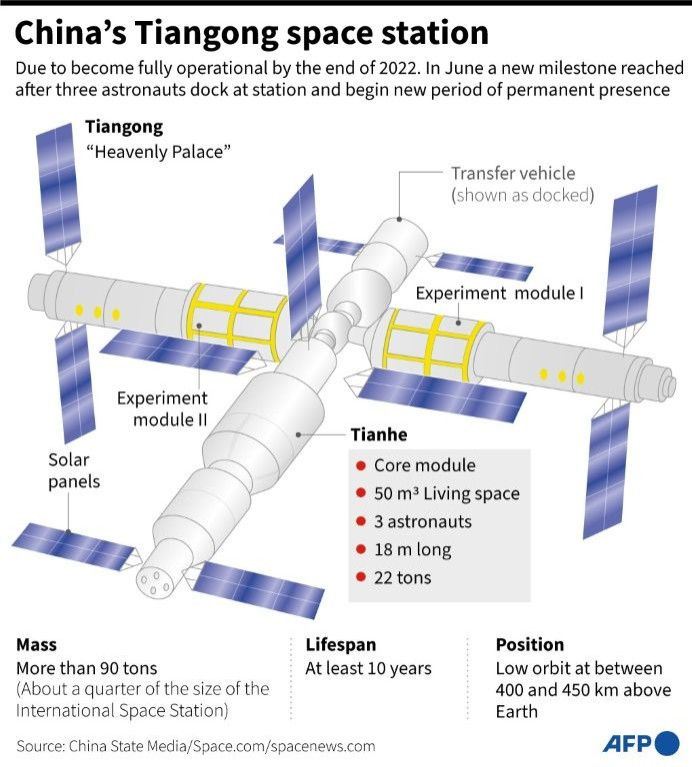China's 23-Ton Rocket Debris Could Crash Land On Earth, No One Knows Where
KEY POINTS
- China's Long March 5B rocket shed 23-ton debris during its first stage in orbit
- Experts said the rocket's weight will unlikely burn up completely during re-entry
- Experts believe the rocket debris will unlikely hit an inhabited area
Rocket debris weighing at least 23 tons from China’s latest launch could crash land on Earth in an unknown location and at great speed, according to experts.
On Sunday at 2:22 p.m. Beijing time, China launched the Long March 5B heavy lift rocket from the southern island province of Hainan to send the solar-powered Wentian lab into orbit and be added to its Tiangong Space Station.
During the rocket’s first stage in orbit, it shed 23-ton debris that is expected to continue looping the Earth over the next few days. Experts have warned that the risky design of the launch process and the rocket’s tremendous weight of more than 1.8 million pounds will unlikely burn up completely during re-entry.
“Unfortunately, it is probable that the 21-tonne core stage will be left in low orbit to make an uncontrolled reentry at an unpredictable location,” Jonathan McDowell, an astronomer at the Center of Astrophysics, said in a tweet posted Sunday.
Unfortunately, it is probable that the 21-tonne core stage will be left in low orbit to make an uncontrolled reentry at an unpredictable location.
— Jonathan McDowell (@planet4589) July 24, 2022
Experts believe the debris will unlikely hit an inhabited area. However, a study published earlier this year found that parts of China’s Long March 5B rockets crashed down twice between 2020 and 2021. One of the debris landed in the Indian Ocean, but debris from the other launch landed and damaged villages in the Republic of Côte d'Ivoire, also known as the Ivory Coast, according to Fox News.
Even after rocket debris from China’s 2021 launch fell into the Indian Ocean, NASA Administrator Bill Nelson said Beijing was "failing to meet responsible standards regarding their space debris," which includes being transparent about such operations. The Chinese Foreign Ministry, in response, said the likelihood of the debris causing damage was “extremely low,” as reported by The Washington Post.
The Long March 5B rocket was designed specifically to launch pieces of the Tiangong space station. The latest mission lifted Wentian, a laboratory module that will expand the station’s scientific research capabilities and allow researchers to conduct ecological and biotechnological experiments. The module is also equipped with a robotic arm for external experiments, an additional airlock for spacewalks and three more spaces for astronauts to sleep.
The Wentian laboratory module successfully docked with the Tiangong space station 13 hours after launch.

© Copyright IBTimes 2024. All rights reserved.






















